How to Lay Rectangular Ceramic Tiles
By Editorial Team
Updated on November 8, 2023

Are you hoping to install tiles in your kitchen or bathroom? If choosing the tile pattern and size are initial questions on your mind, what about the technique used when laying tiles?
While the appearance of the tile is certainly of great importance, the method of laying tiles needs to be taken into consideration. Here’s a brief overview of the options available to you for this ceramic project.
6 rectangular ceramic tile laying techniques
1- Chevron
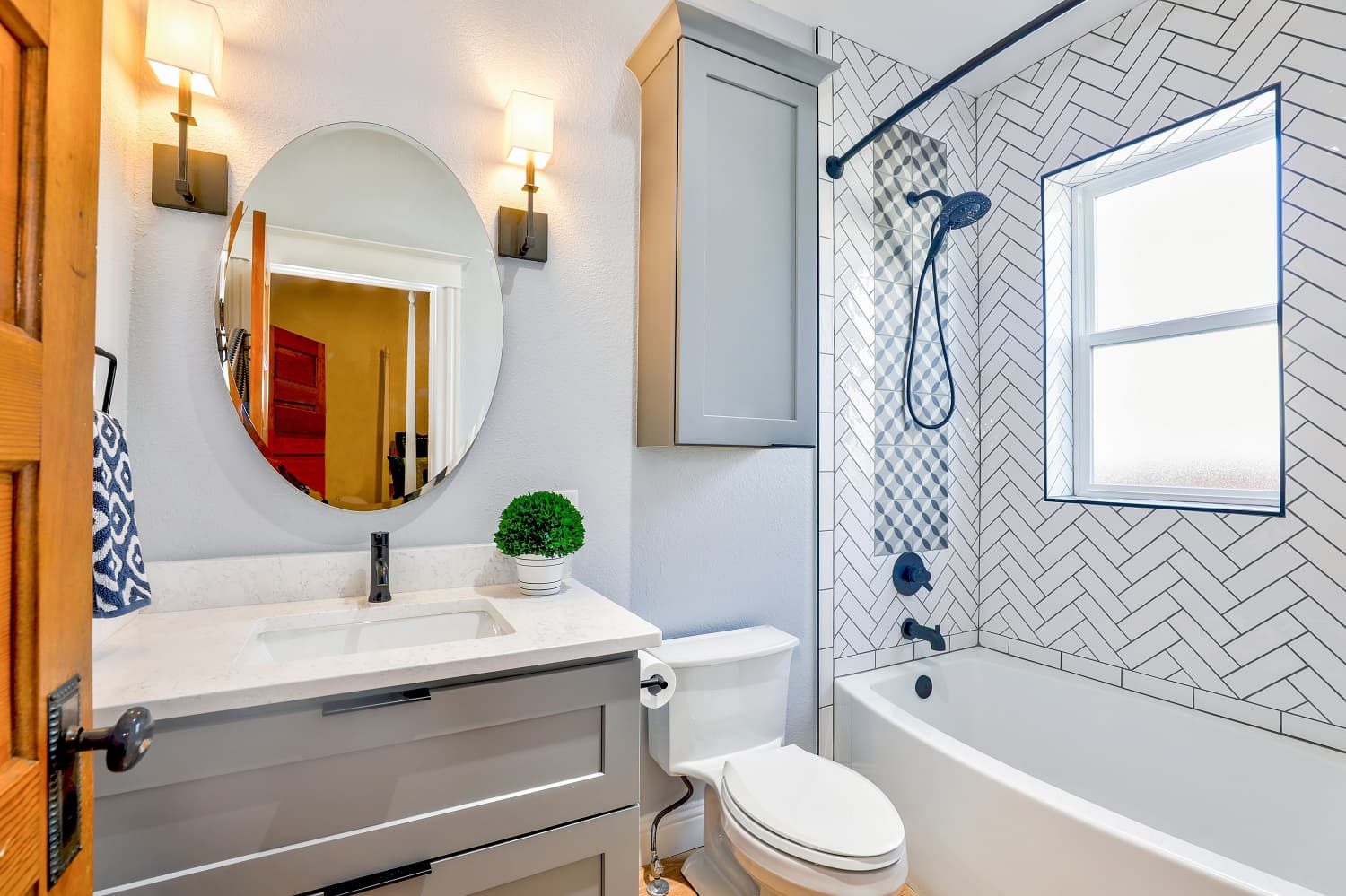
Standing out for its undeniable originality, the chevron installation still requires great care to be executed to perfection. What's more, it involves making several cuts, which requires investing more time to carry out the project. Moreover, as losing tiles and materials is more considerable, this will have an influence on the necessary budget.
Let's finish by mentioning that this method takes advantage of the diagonal line of the room, which has the benefit of visually enlarging the room. Therefore, this technique should be a priority for small bathrooms or kitchens.
2- Offset

Although the staggered installation follows a straight line, it nevertheless turns out different from what the name suggests. Essentially, this one follows a 2/3-1/3 ratio. As with a straight installation, it’s of the utmost importance that the spacing of this installation is the same from start to finish. More specifically, you should know that there are three types of spacing:
the second tile is placed after the first third of the first tile;
the second tile is laid after the first quarter of the tile laid first;
the second tile is laid so that it starts halfway from the first tile. This technique is particularly suitable for small tiles.
3- L-shaped
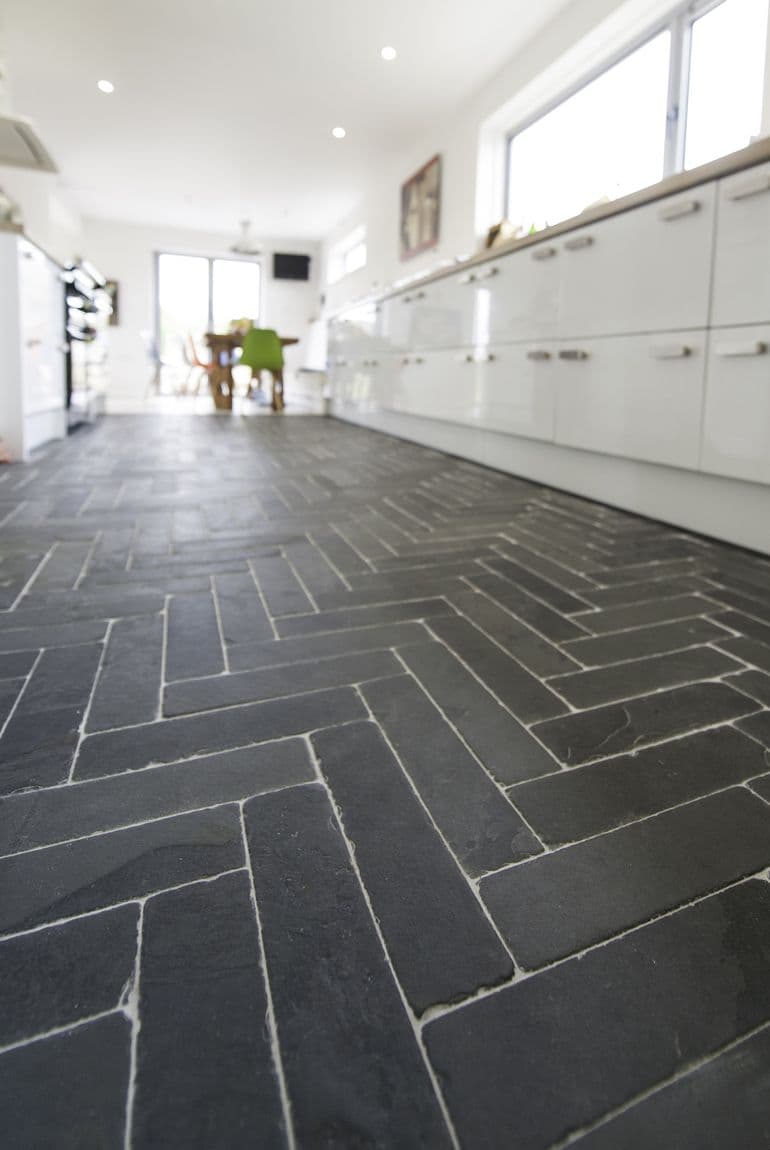
Photo: Ardosia Slate
Visually similar to the rafter installation, it still has several significant differences: the fact that it aligns perpendicular to the wall and requires fewer cuts to complete. As its effect reduces the length of a space, it’s a good option for narrow hallways.
4- Parquet

This method lays two rectangular tiles horizontally (one above the other), then two vertically and so on. Similar to the straight-line installation, this type of installation limits the number of cuts necessary to complete the project, making it an economic option.
Regarding its aesthetic qualities, it’s considered to be particularly effective in visually reducing the length of narrow passages such as corridors. Although classic, this type of layout adds a touch of originality to a room’s design. Finally, it’s relatively easy to install, which will delight many!
5- Herringbone
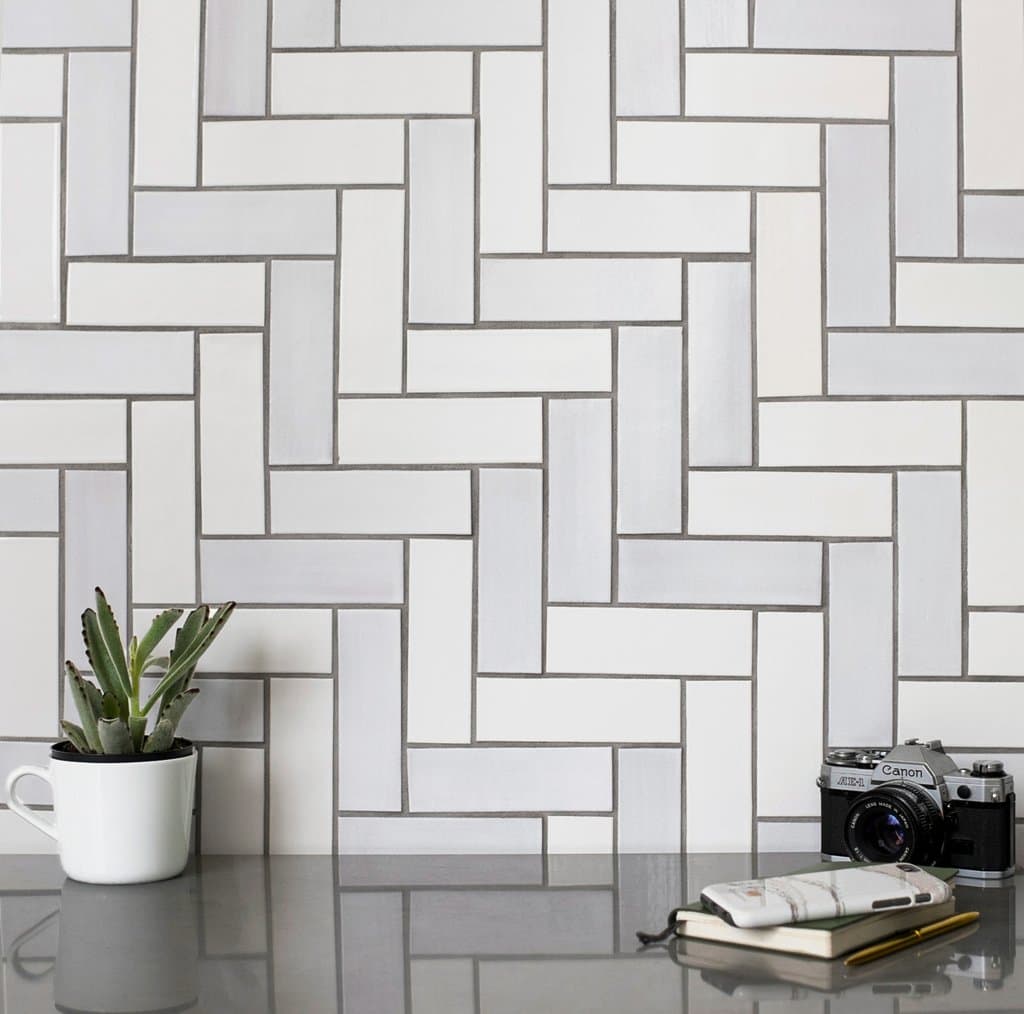
Photo: Mercury Mosaics
When it comes to originality, the herringbone pattern is one of a kind! It consists of tiles laid in a "V" shape, which gives the impression of several "V's" fitted into each other. Installation needs a certain amount of expertise, which ideally requires calling a professional if you have little experience carrying out this type of project.
6- Straight
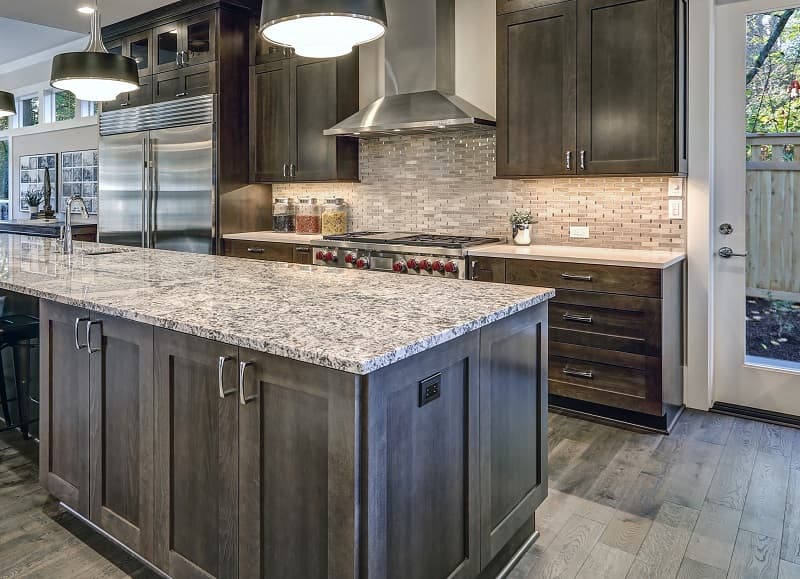
Laying tiles in a linear fashion. Not surprisingly, this technique is particularly popular. Why is that? Quite simply because it’s the perfect choice for contemporary and modern decors and it limits the number of cuts required for this tile installation. The losses are small, which makes this option inexpensive.
Would you like more information about ceramics? We have some articles for you:
Get 3 renovation quotes for your tiling project
RenoQuotes.com can help you get quotes for your tile renovation project. If you submit your project to us, we’ll put you in contact with top-rated contractors. Fill in the form on the homepage (it only takes a few minutes), and you will get estimates from trusted professionals.
Dial 1-844 828-1588 to speak with one of our customer service representatives
Looking for something else?
Related articles
The latest industry news, interviews, technologies, and resources.

Editorial Team
•08 Nov 2023
If your home is in a humid climate, or you’re finding a buildup of condensation on your walls or windows, you should consider a dehumidifier for your home.

Editorial Team
•08 Nov 2023
Tankless water heaters warm up water on demand rather than ahead of time and storing it in a tank. Chances are that you might not have heard about this option, or are a wee bit familiar with it, so we’ll outline the pros and cons of this type of system for you.

Editorial Team
•08 Oct 2025
Cabinetmaking can only mean one thing: wood, wood, and more wood! Unlike materials like cement, steel, brick, stone, or fibreglass, timber is unique as it originates from tree transformation, meaning from a living and widely diversified organism. As such, cabinetmakers are woodworking savants, whether making furniture, designing decorative wooden pieces, or building accessories for manufacturers.

Editorial Team
•08 Nov 2023
Your kitchen cabinets are one of the first things people notice in your kitchen. If they are outdated, splintering, or are just in bad shape in general, they will be even more noticeable to you and your guests.
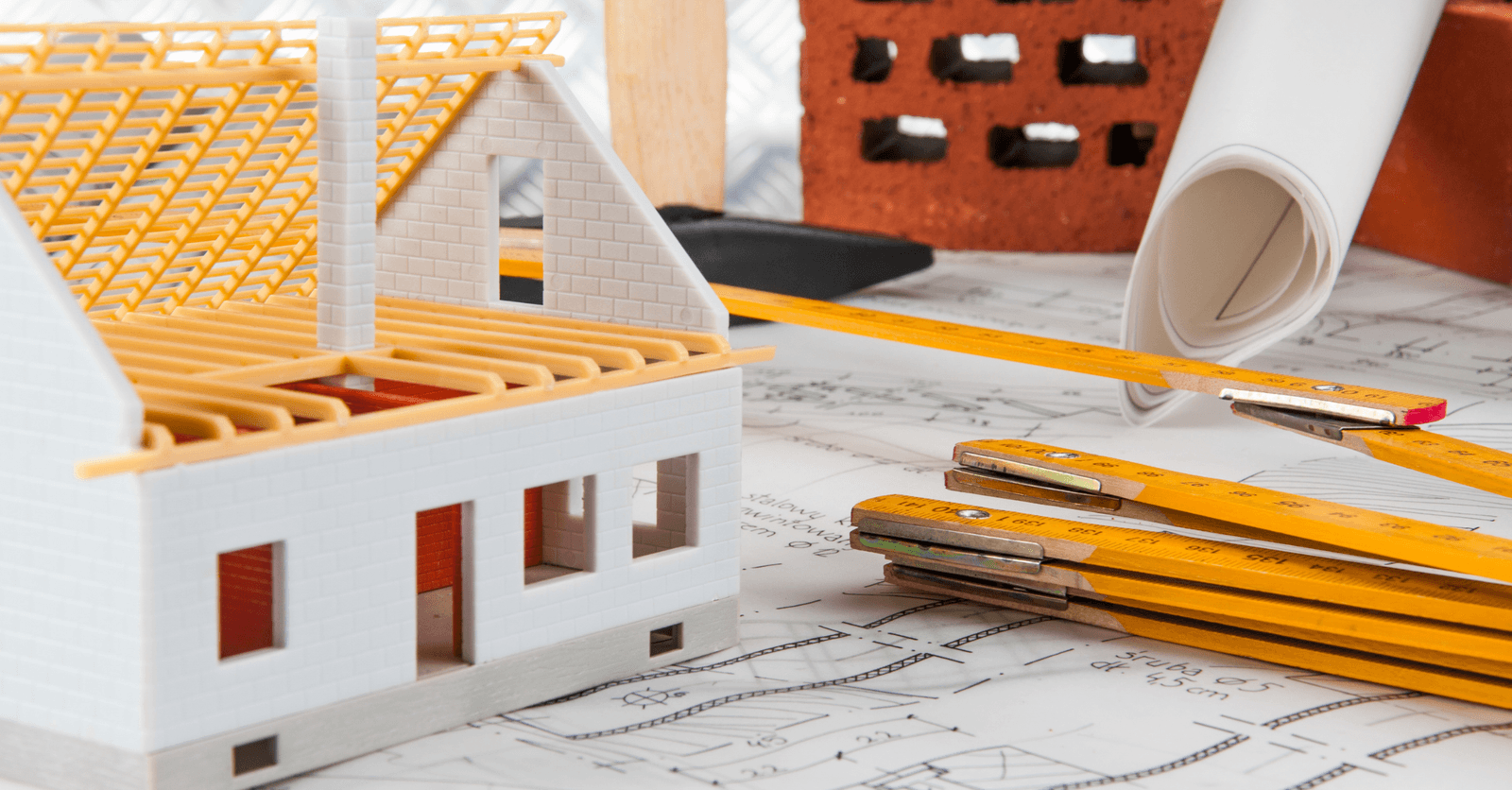
Amanda Harvey
•08 Nov 2023
As we know all too well, renovating a home can be extremely costly, not to mention a stressful and time-consuming process. Not everyone is able to spend the necessary funds on projects they may want or need to carry out. Luckily, across Canada, there are several options in the realm of funding, subsidies, tax credits, and grants that can be applied to your province-specific home renovation project.